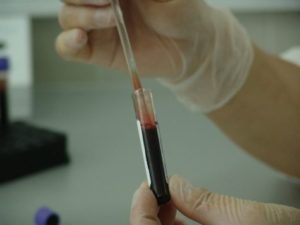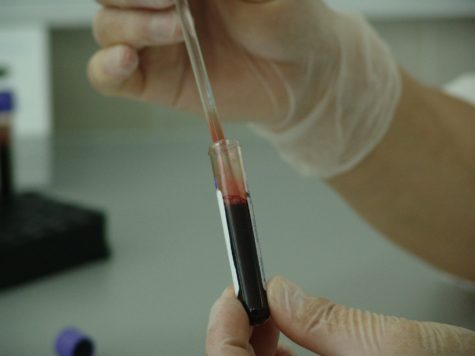SAN DIEGO — When Charlie Sheen revealed to Matt Lauer that he’d been diagnosed with HIV in November of 2015, news coverage and Google searches about the virus, along with searches about prevention, reached record highs in the weeks immediately following the announcement. It was dubbed the “Charlie Sheen effect.”
Now, a new study led by researchers at San Diego State University finds that the effect was even more tangible than just online searches: people were also purchasing at-home HIV testing kits at record levels.

The research team sought to figure out if there was a correlation to sales of OraQuick, the only rapid at-home HIV testing kit sold in the U.S., and the skyrocketing searches for HIV-related information. They found that sales mirrored the coverage, with a 95 percent increase in purchases the week that Sheen made the announcement. Sales continued to outpace previous numbers over the following four weeks.
“In absolute terms, it’s hard to appreciate the magnitude of Sheen’s disclosure,” says study coauthor Benjamin Althouse, research scientist with the Institute of Disease Modeling, in a press release. “However, when we compared Sheen’s disclosure to other traditional awareness campaigns the ‘Charlie Sheen effect’ is astonishing.”
To put the Sheen Effect into perspective, researchers pointed to World Aids Day, which resulted in a major spike in HIV prevention campaigns and tests. Sales of OraQuick kits jumped 31 percent after World Aids Day — a much lower number than the 95 percent seen after Sheen’s revelation. Researcher determined it would take 7 World Aids Days to see another Charlie Sheen Effect.
The team believes the research emphasizes the impact a celebrity or public figure can have when it comes to public health campaigns. They concluded that people are likely to show more a greater response when an a campaign centers on one person, as opposed to a mass of unnamed people that we might see on World Aids Day.
“Our findings build on earlier studies that suggest empathy is easier to motivate others when the empathy is targeted toward an individual versus a group” says coauthor Jon-Patrick Allem, research scientist with the University of Southern California Keck School of Medicine. “It is easy to imagine that a single individual, like Sheen, disclosing his HIV status may be more compelling and motivating for people than an unnamed mass of individuals or a lecture from public health leaders.”
